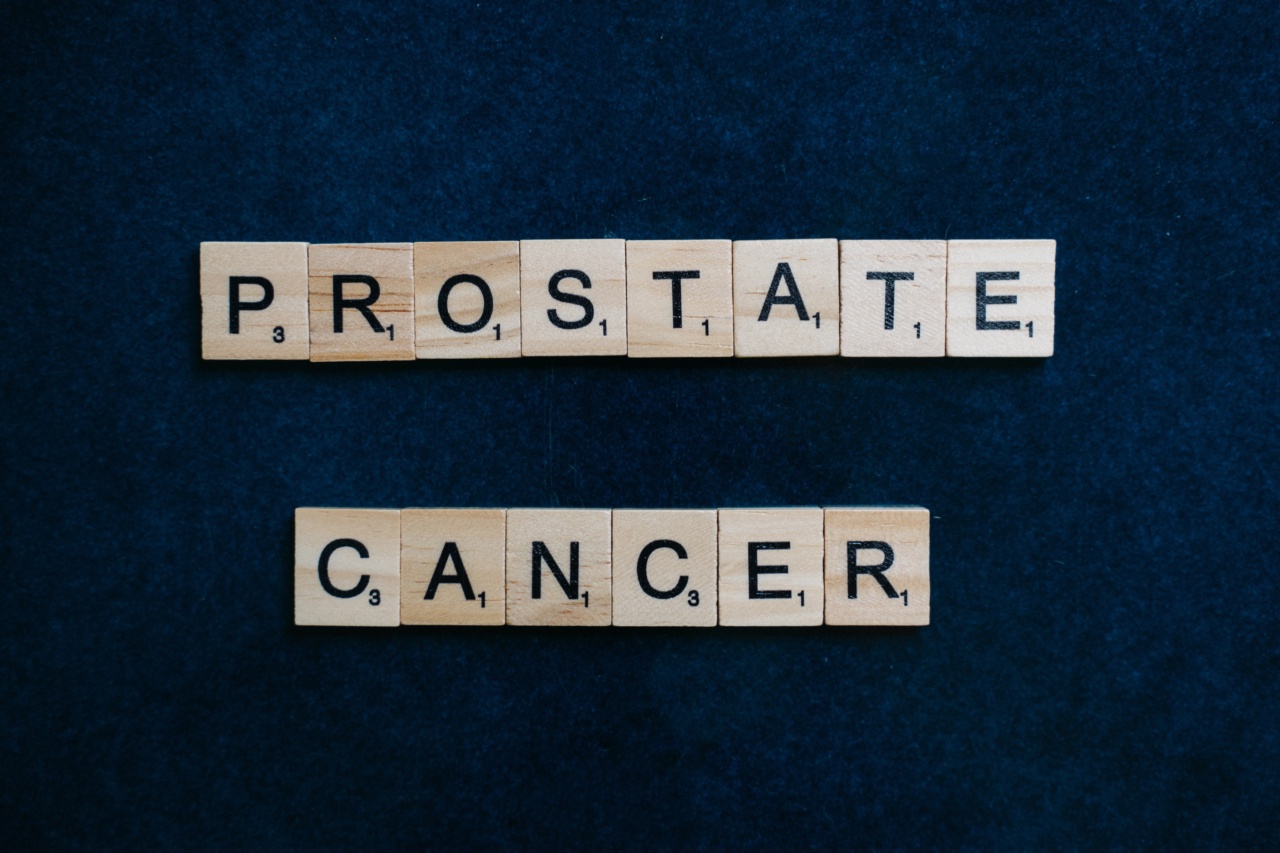Prostate cancer is one of the most prevalent forms of cancer in men. With its high incidence rate, it is crucial to separate fact from fiction to make informed decisions about prevention, screening, and treatment options.
Unfortunately, there are many myths surrounding prostate cancer that can cause unnecessary anxiety and confusion. In this article, we will debunk some of the most common prostate cancer myths and provide evidence-based information to help you make educated choices regarding your health.
Myth 1: Only older men get prostate cancer
One of the prevailing myths about prostate cancer is that it only affects older men. While it is true that the risk significantly increases with age, younger men can also develop prostate cancer.
In fact, men in their 40s and 50s can be diagnosed with prostate cancer, although the incidence is lower compared to older age groups. Regular screening is essential for early detection, regardless of age.
Myth 2: Prostate cancer is always aggressive
Contrary to popular belief, not all prostate cancers are aggressive. In many cases, prostate cancer progresses slowly, and some men may live with it for years without experiencing any symptoms or adverse effects on their health.
Active surveillance, also known as watchful waiting, is a valid approach for low-risk or early-stage prostate cancer. It involves monitoring the cancer closely without initiating immediate treatment.
Myth 3: Prostate cancer is always symptomatic
Another myth surrounding prostate cancer is that it always presents noticeable symptoms. Unfortunately, prostate cancer often develops without causing any noticeable signs in its early stages.
This highlights the importance of regular prostate-specific antigen (PSA) testing and digital rectal exams (DRE) as screening methods. Early detection through screening is key to successful treatment outcomes.
Myth 4: Sexual activity increases the risk of prostate cancer
There is no scientific evidence to support the notion that sexual activity increases the risk of prostate cancer.
Several studies have been conducted to examine the relationship between sexual activity, frequency, or number of partners, and prostate cancer risk. None of these studies have found any valid connection between sexual activity and the development of prostate cancer.
Myth 5: Vasectomy increases the risk of prostate cancer
Another common myth is that undergoing a vasectomy increases the risk of developing prostate cancer. However, numerous studies have failed to establish a significant association between vasectomy and increased prostate cancer risk.
The American Urological Association and other medical organizations have concluded that there is no direct link between vasectomy and prostate cancer.
Myth 6: Supplements can prevent prostate cancer
While certain nutritional supplements and dietary changes may have a positive impact on overall health, there is no concrete evidence to support the claim that they can prevent prostate cancer.
Some studies have suggested that diets rich in fruits, vegetables, and certain nutrients like lycopene may have a protective effect. However, more extensive research is needed to establish a definitive link between supplements and prostate cancer prevention.
Myth 7: All prostate cancers require immediate treatment
As mentioned earlier, not all prostate cancers require immediate treatment. For low-risk or early-stage prostate cancer, active surveillance may be a suitable approach to avoid unnecessary side effects associated with treatment.
The decision on when to initiate treatment depends on various factors, including the individual’s age, overall health, the aggressiveness of the cancer, and personal preference.
Myth 8: Prostate cancer screening always leads to overtreatment
Prostate cancer screening, notably PSA testing, has been a topic of debate due to concerns about potential overdiagnosis and overtreatment. However, recent developments in screening protocols have helped reduce the chances of unnecessary treatments.
Shared decision-making between patients and healthcare providers, considering the potential benefits and risks, allows for more personalized and informed treatment decisions.
Myth 9: Advanced age contraindicates prostate cancer treatment
Although age plays a role in decision-making regarding prostate cancer treatment, advanced age alone does not automatically exclude individuals from receiving treatment.
Each case should be evaluated individually, considering overall health, life expectancy, and the patient’s personal preferences. Age should not be the sole determining factor in treatment decisions.
Myth 10: Prostate cancer is always deadly
Prostate cancer can be a serious condition, but it is not always deadly. With early detection, appropriate treatment, and proper management, many men diagnosed with prostate cancer can survive and live fulfilling lives.
It is important to stay informed, practice regular screening, and consult with healthcare professionals to make informed decisions about diagnosis, treatment, and ongoing care.



























